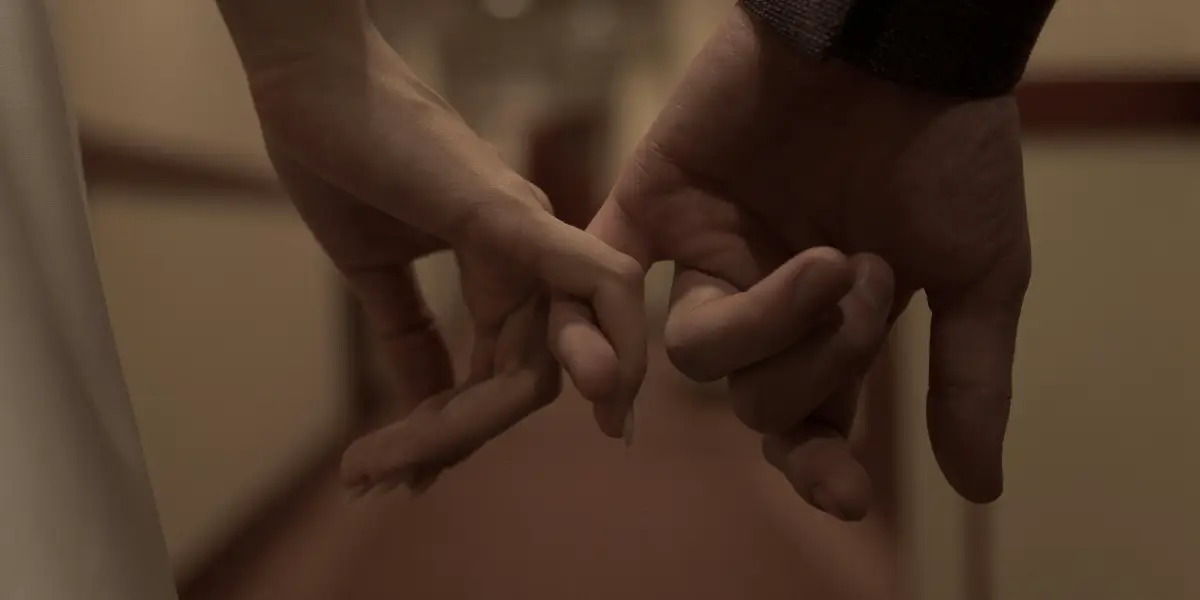What are the root causes of resentment and anger in relationships affected by addiction?
Resentment and anger in relationships impacted by addiction often arise from broken trust, unmet needs, and repeated emotional harm. These emotions are natural responses to the challenges addiction brings, which can profoundly affect marriages and long-term relationships.
The cycle of addiction frequently involves dishonesty, neglect, and betrayal, leaving the non-addicted partner emotionally wounded. Understanding the root of these feelings is essential for addressing them and fostering healing within the relationship.
1. Broken Promises
When promises to quit using substances are made and then broken, it leads to a pattern of emotional highs and lows. This cycle creates frustration and emotional exhaustion for the non-addicted partner, making it difficult to believe in future commitments or maintain a sense of hope in the relationship.
2. Neglect
As addiction takes priority, the partner not using substances often feels emotionally and physically ignored. Daily needs, conversations, and shared responsibilities fall by the wayside, creating a lasting sense of being unimportant, invisible, and disconnected from the addicted partner’s life and priorities.
3. Financial Strain
Money problems are common in relationships affected by addiction, from lost jobs to debt or funds used on substances. These financial pressures create conflict, fear about the future, and resentment when one partner feels they are carrying all the weight or cleaning up the other’s financial missteps repeatedly.
4. Loss of Trust
Lies about substance use, secret spending, and disappearing for long periods all damage trust over time. Once this foundation is compromised, the non-addicted partner may become anxious, hyper-vigilant, or withdrawn, which deepens emotional rifts and adds fuel to cycles of anger and frustration.
5. Emotional Exhaustion
Taking on added responsibilities like childcare, household duties, or managing crises caused by addiction wears down the non-addicted partner. This chronic stress often goes unacknowledged, resulting in bottled-up resentment and the feeling that their own well-being is being neglected or sacrificed.
How can loved ones manage their resentment and anger?
Managing resentment and anger requires intentional strategies focused on emotional well-being and healing. Loved ones can benefit from practicing self-care, setting boundaries, and understanding their emotions. Learning effective communication techniques in couples therapy is also crucial for fostering understanding and reducing conflict.
By addressing these emotions constructively, individuals can improve their relationships while also supporting their own growth and mental health.
- Acknowledge your feelings: Validating and expressing your emotions helps reduce internal conflict and distress.
- Set healthy boundaries: Clear limits protect your well-being and prevent you from being consumed by your loved one’s addiction.
- Seek support: Therapy and support groups offer tools and understanding that help you process and release resentment.
- Focus on what you can control: Concentrate on your reactions and decisions rather than trying to change someone else.
- Practice compassion: Recognizing addiction as a disease can soften anger and promote emotional healing without excusing harmful actions.
What steps can a partner in recovery take to rebuild trust?
For a partner in recovery, rebuilding trust involves consistent effort, honesty, and a commitment to change. Trust is restored gradually through accountability and acknowledging past harm. Exploring the process of couples rehab can provide a structured environment for addressing these challenges and fostering trust.
Taking responsibility for past actions and demonstrating genuine remorse are critical steps in healing the relationship.
- Take responsibility: Acknowledge past wrongs openly and sincerely. Avoid minimizing the harm caused or shifting blame. Accepting full responsibility for your behavior is the first step toward rebuilding trust and showing your partner that you are committed to healing the damage done.
- Be transparent: Be open and honest about your progress in recovery. Regularly share updates, challenges, and successes to create a transparent environment. Transparency builds reliability and allows your partner to feel more secure as you move forward together.
- Practice patience: Trust isn’t restored overnight. Be patient with your partner’s healing process, even when it’s difficult. Avoid expecting quick forgiveness, and give them the space and time they need to rebuild emotional safety at their own pace.
- Commit to recovery: Stay consistent with your recovery efforts by engaging in therapy, support groups, or treatment programs. Your ongoing participation shows that you’re serious about staying sober and becoming a dependable partner again, reinforcing long-term change.
- Listen without defensiveness: When your partner expresses hurt or concern, listen fully without getting defensive. Acknowledge their pain and validate their emotions. Open, empathetic communication fosters deeper emotional safety and helps rebuild trust over time.
How can couples work together to heal resentment and anger?
Healing resentment and anger in relationships affected by addiction requires a collaborative approach. Both partners must commit to open communication, mutual respect, and seeking professional help when necessary. Understanding the benefits of recovery for couples can highlight the positive outcomes of working together toward healing.
Strategies like rebuilding trust, addressing underlying issues, and fostering honest dialogue can strengthen the relationship and pave the way for a healthier future.
- Use ‘I’ statements: Express feelings without assigning blame. For example, say ‘I feel hurt when…’ instead of ‘You always…’.
- Practice active listening: Give your partner full attention when they speak. Reflect on their words to ensure understanding and avoid interruptions.
- Schedule time for conversations: Dedicate time to calmly and respectfully discuss feelings and the relationship’s state.
- Seek professional counseling: Therapists specializing in addiction can provide tools for effective communication and conflict resolution.
- Focus on shared goals: Work together to set goals for improving communication and supporting personal growth.
When should professional help be considered?
Professional help should be sought when resentment and anger lead to ongoing conflict, emotional distress, or risk of harm. Therapists and support groups can provide tools to navigate these emotions and rebuild the relationship. Learning how to approach drug rehab may also serve as a starting point in addressing addiction-related challenges.
Couples counseling, individual therapy, or group support can help address complex emotions, improve communication, and foster understanding between partners.
Facilitate difficult conversations
Therapists offer a neutral, supportive setting where both partners can express their thoughts and emotions honestly. This helps reduce defensiveness, manage conflict more productively, and promote a healthier emotional environment where deeper issues can be addressed safely.
Develop healthy communication skills
Professional counseling teaches partners how to express emotions without blame and listen with empathy. These tools reduce miscommunication, prevent escalation, and build a stronger emotional connection based on understanding and mutual respect.
Rebuild trust
Therapists guide couples in rebuilding trust by encouraging transparency, consistency, and accountability. Through structured support, partners can begin to restore safety and confidence in one another and move forward with a renewed sense of commitment.
Address underlying issues
Professional help can uncover unresolved trauma, anxiety, depression, or other mental health issues that fuel addiction and relationship struggles. By addressing these root causes, therapy promotes lasting healing and emotional balance in both partners.
Support lasting recovery
Therapists and support programs help couples navigate recovery together by setting healthy boundaries, maintaining motivation, and developing shared goals. This promotes both sustained sobriety and a more stable, connected partnership.
What makes Carrara Rehab unique in addiction treatment?
At Carrara Rehab, we provide an ultra-luxury addiction treatment experience that redefines recovery. Located in the serene beauty of Malibu, California, our center offers a discreet, comfortable, and personalized approach tailored to meet the unique needs of our clients. Our evidence-based therapies, combined with holistic practices, create a comprehensive recovery journey that addresses the mind, body, and spirit.
Our clients benefit from a high staff-to-patient ratio, ensuring personalized attention and care throughout their stay. Privacy is a cornerstone of our approach, making Carrara an ideal choice for high-profile individuals, such as celebrities and executives, who require discretion and confidentiality.
What luxury amenities does Carrara Rehab offer?
At Carrara Rehab, we believe that recovery should be a transformative and comfortable experience. Our ultra-luxury amenities ensure that clients feel at ease during this challenging time, providing a sense of home and serenity.
Exclusive features and services
- Private accommodations: Spacious rooms with ensuite bathrooms for ultimate comfort.
- Gourmet dining: Meals prepared by professional chefs to support nutritional wellness.
- Wellness facilities: State-of-the-art fitness centers, personal trainers, and spa services including massages, facials, and reflexology.
- Relaxation areas: Pools, Jacuzzis, saunas, and outdoor spaces designed for tranquility and rejuvenation.
These amenities are designed to create a sanctuary where clients can focus on their recovery while enjoying unparalleled comfort and luxury.
How does Carrara integrate holistic therapies into treatment?
Holistic therapies are a cornerstone of Carrara Rehab’s approach, addressing the mind, body, and spirit to promote comprehensive healing. These therapies are seamlessly integrated into individualized treatment plans, ensuring a well-rounded recovery experience.
Examples of holistic therapies
- Mind-body practices: Yoga, mindfulness, and meditation to enhance emotional well-being.
- Alternative therapies: Acupuncture, reiki, and cranial sacral therapy to support physical and mental health.
- Relaxation techniques: Sound baths and aromatherapy for stress relief and balance.
By combining these holistic therapies with evidence-based treatments such as Cognitive Behavioral Therapy (CBT) and Eye Movement Desensitization and Reprocessing (EMDR), Carrara ensures a comprehensive approach to recovery.
Where can you find Carrara’s luxury rehab centers?
Carrara Rehab offers multiple luxury rehab locations, each designed to provide a serene and discreet environment for recovery. These facilities cater to different preferences and needs, ensuring that every client finds the perfect fit for their journey.
- Explore The LA Carrara House for a sophisticated urban recovery experience.
- Discover The Hollywood Hills Carrara House, a private sanctuary in the heart of Los Angeles.
- Experience The Malibu Beach House, offering breathtaking ocean views and tranquility.
Each location is designed with luxury, privacy, and comfort in mind, ensuring an unparalleled recovery experience.
Ready to take the first step toward recovery?
At Carrara Rehab, we are committed to helping you achieve lasting recovery in a setting that feels like home. From personalized care to luxurious amenities, we provide everything you need to heal and thrive.
- Personalized care: Tailored treatment plans that address your unique needs.
- Luxury and privacy: A discreet environment with world-class amenities.
- Comprehensive wellness: Holistic therapies and wellness programs for long-term health.
Take the first step toward a transformative recovery experience today.
“
Britney Elyse has over 15 years experience in mental health and addiction treatment. Britney completed her undergraduate work at San Francisco State University and her M.A. in Clinical Psychology at Antioch University. Britney worked in the music industry for several years prior to discovering her calling as a therapist. Britney’s background in music management, gave her first hand experience working with musicians impacted by addiction. Britney specializes in treating trauma using Somatic Experiencing and evidence based practices. Britney’s work begins with forming a strong therapeutic alliance to gain trust and promote change. Britney has given many presentations on somatic therapy in the treatment setting to increase awareness and decrease the stigma of mental health issues. A few years ago, Britney moved into the role of Clinical Director and found her passion in supervising the clinical team. Britney’s unique approach to client care, allows us to access and heal, our most severe cases with compassion and love. Prior to join the Carrara team, Britney was the Clinical Director of a premier luxury treatment facility with 6 residential houses and an outpatient program




